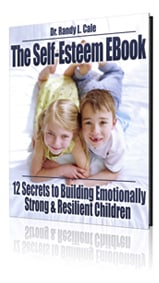Yes, with few exceptions, we are all living different lives. And we might continue for quite a while. As mentioned last week, in my view, these times truly fit the proverb, “Crisis is an opportunity riding the dangerous wind.” There is a clear opportunity amidst this crisis, that most of us are handling with relative ease and acceptance. Opportunities to get stronger as parents, to get more centered within ourselves, and to build a more united family… less dependent on external activity and distraction.
However, in my telehealth conversations this week with clients, as well as from the emails I have received, it is clear that one fundamental struggle emerges: Limits.
- Should we be setting limits?
- How do we do that without war?
- Why should we set limits, if this is temporary?
Limits Are Essential…Now More Than Ever.
The literature on child development has been clear on certain topics for decades, and there is no data to suggest that this will ever change. Children thrive on limits. They are happier, adjust better and are more prepared to succeed in life. This does not shift amidst a crisis or pandemic.
Why? Because the world we live in is filled with limits everywhere we turn. But more importantly, limits are necessary for both growth and self-discipline.
The absence of limits teaches everything that is inaccurate and false and leads to beliefs that do not fit well with success, happiness or being responsible. So yes, please set limits.
But How Do I Set Limits without Constant Battles?
This is a critically important issue. The secret is rather simple. Most parents try to set limits by controlling their children, rather than controlling what kids care about. When we use lots of words to try to set limits, we appear weak and rather stupid.
Why is that? Shouldn’t children respect our words?
Well, better we do not deal in shoulds. The question is whether words effectively get the results we want when it comes to setting limits. I find they do not.
Thus, when setting limits, it is often better to abandon lots of words, negotiations, and arguments. That will drive you insane. In fact, it will often lead to you sounding like the ‘crazy person’ as you start yelling and screaming at a child who is smirking at you. Not good.
So instead, abandon controlling the kids. Focus upon controlling the controllables. For this discussion, that means you don’t try to argue or fight your way to agreement. You won’t get it. Instead, you take control of all those electronics, those games, and all the goodies.
Control what your children care about, and then you can have the magic that comes with leverage. In too many discussions this past week, I find well-intentioned parents abandoning reasonable limits because the battles were too severe.
Please: don’t battle or argue. This is exhausting, frustrating and ultimately ineffective.
Instead: seize control of the stuff your kids care about and use this to leverage them to get their homework done. You can also use this to leverage them to get outside and go for a walk, or do some chores or even tackle a novel project with Mom or Dad. At the end of the day, you don’t fight about cutting off the phone. As an alternative, you simply turn it off. The optimal version of this involves you learning to use the software that allows you to effortlessly shut down all the gadgets in the home.
And for most of you, please trust your gut. The literature on the addictive and unhealthy nature of our additions to electronics is compelling. We must start setting stronger limits. This is true now more than ever. Remember: This is the opportunity riding the dangerous wind.
And the opportunity here? The opening here in these times is uniquely wonderful. We have the opportunity for children to learn that boredom is a choice, and they can step out of it. They have the opportunity to learn something new, with their own initiative. They have the opportunity to recognize that they have a creative mind and that this creativity opens a door to magical possibilities. They might even come to realize that they have been dependent on outside entertainment to fulfill their desire for satisfaction and that this is its own addiction. Ultimately, they might find an opportunity to connect more deeply with family and discover the rewards of contribution over incessant self-seeking a dependence on other-driven activity and reward.
At this moment, unusual limits are enforced by society. But this doesn’t affect the limits we set in our homes of course. When this is over, your children will still encounter from schools, coaches, employers, law enforcement, and so forth.
Most externally imposed limits have evolved over time, as a way to preserve peace, cooperation, and productivity. Without limits, chaos unfolds.
Limits also bring an amazing personal reward, and it is one not often acknowledged. The reward is discipline.
At the core of every disciplined action is a limit that we repeatedly respect. And life responds to disciplined action. In fact, life rewards it.
In these times, however, we might be tempted to take the easy path, rather than the more challenging path where limits are maintained.
So What Happens When We Fail to Set Limits with Children During These Times?
In a child’s or teen’s world, there are certain protections in place. There is food, shelter, transportation, education, medical care, and love. These are all present for most children right now, even if no limits are in place.
Thus, for children and teens, life goes on whether they learn to live within certain limits or they live with few limits.
The problem is that strong beliefs are being learned, and these either fit with the way the world works, or they do not.
False Reality: When few limits are in place, a false reality is created deep in the minds of these children and teens, who will soon become adults. This false reality unfolds because there is the expectation we nurture that sounds like this: ‘I should get all that I want in life only doing what is enjoyable and easy for me. And… I don’t have to do anything I don’t want to do.’
We see this reality unfolding in graduates and new employees. They expect to be paid for experience when they have none. They often quit quickly and cannot accept feedback, unless it is filled with praise. Many refuse to do anything beyond their job description, for fear of doing something they may not get paid for. And, if it gets tough…they leave. This is what we have nurtured.
Mom…Dad…Pay Attention to the Pointers!
The pointers to future problems are there now, right in front of us all. When your life is crazed, hectic and all you do is run from here to there…with no sense of calm or peace…that’s a pointer.
- When you are spending most of your time observing and transporting children, rather than playing with children or sharing with family, that’s a pointer
- When your child or teen refuses to clean their room or to help rake the yard, that’s a pointer.
- When your son doesn’t leave the X-box to join you for dinner, or your daughter won’t put down her phone to talk to you, that’s a pointer.
- When the focus has become child-centric, rather than family/community-centric, then again…that’s another pointer.
- When your child speaks to you as an adult, that’s a pointer.
- When your child or teen threatens you with bad behavior, if you don’t give them what they want, that’s a pointer.
These pointers all tell us that our families are too often out of balance. We are doing more and more for our children conforming to what they enjoy or seek. And, at the same time, we are following the herd’s direction, relying upon the input of others rather than checking our own intuition about what makes sense.
Set Limits on Your Children…Please!
Once again, I encourage you to look at reality. Anytime you see someone who is healthy, you see limits that they have imposed. No junk food, so sitting all day, no excess TV, no bad substances, etc.
Or, if you see someone who is running a business successfully, you see limits. They are disciplined in how they run their business, and limits are everywhere. Limits on how employees speak to customers, limits on appearance, limits on how late you come to work, limits on spending and the list goes on.
If you see someone happy with their life, we know that there are limits they honor. Just look for them.
I mention all this to encourage you to avoid the easy path. The easy path is the path of least resistance. As a parent, this is where we get in trouble. As soon as we go down this path, we tend to bend to the wishes of our children.
This is the moment of error…when we fail to set limits based on our good judgment and our solid values. When we set limits, we will be honoring higher values, as well as the behaviors that reflect those values. Values such as family time, cleanliness, organization, contribution, respect, kindness, love and balance. Our words and lectures will never teach these values. Only solid limits and clear follow-through will do the job. So please, do set limits now. Once it’s too late…it’s too late.















